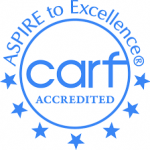Beyond those resume bells and whistles
For too long, the prevailing paradigm for recruiting and retaining managers in for-profit and nonprofit corporations favored candidates that had resumes with the right bells and whistles.
Thus, to well-meaning recruiters who fully subscribe to that paradigm, the best predictors of top performance are big academic qualifications (from top universities) and of, course, big titled positions the candidates have held. In other words, qualification is king and experience is queen. And thanks to our digital dispensation, anybody who knows how to properly spice up their resume is able to scale the algorithm hurdle and land an interview. Fast.
While their “king” and “queen” can be helpful, I submit that they are not the best predictors. The best predictor is the deep-seated value system of the candidates.
As a matter of fact, I am not the first to reach that conclusion. According to a relevant Fast Company piece, many employers have realized that “What people know is less important than who they are. Hiring, they believe, is not about finding people with the right experience. It’s about finding people with the right mind-set.”
I agree completely.
To gauge the said right mindset, some conscientious recruiters depend on candidates’ responses on a value-centric questionnaire, etiquette at a downtown sit-down restaurant or feedback from references and previous employers. I particularly like the idea of recruiting from a pool of frequent volunteers within or without. Why? I believe it takes a lot of moral courage to continue to render good service to others without compulsion and compensation.
As many chief executives do, I often spend some time weighing the performance (or non performance) of my top executives against their pre-recruitment qualifications, experience, posture and promises.
In almost all cases, the top performers are the women and men with the right mindset and attitude toward our 107-year-old mission and the ever-increasing population – of homeless, hungry and hurting people – we serve.
Those top performers are usually selfless self-starters. They need minimal supervision. They don’t just pretend to do the job when they think I am “looking” and then gallivant when I am away meeting with potential and existing donors and partners.
Instead, they demonstrate their deep sense of commitment and dedication to the job they are paid to do. And without singing their own praise at every turn, they let their accountability-in-action speak for them; accountability not only to their supervisor but also to their good conscience and most importantly the Almighty God, who, unlike mortal me, is everywhere at the same time, and sees what they do when nobody is watching.
Top performance anywhere is mostly a function of good character, and, in the timeless words of Dwight L. Moody, “character is what you are in the dark.” An insincere and corner-cutting person with top degrees and long-winded work experience will likely underperform “in the dark” where there might be no immediate glory or gain. That’s not right.
So, “Whatever you do, work at it with all your heart, as working for the Lord, not for human masters.” So says Paul in Colossians 3: 23.
As for me, I say to you, my friends, get all the big qualifications and big experiences you can but NEVER FORGET to develop your character because it is your biggest and best asset.







